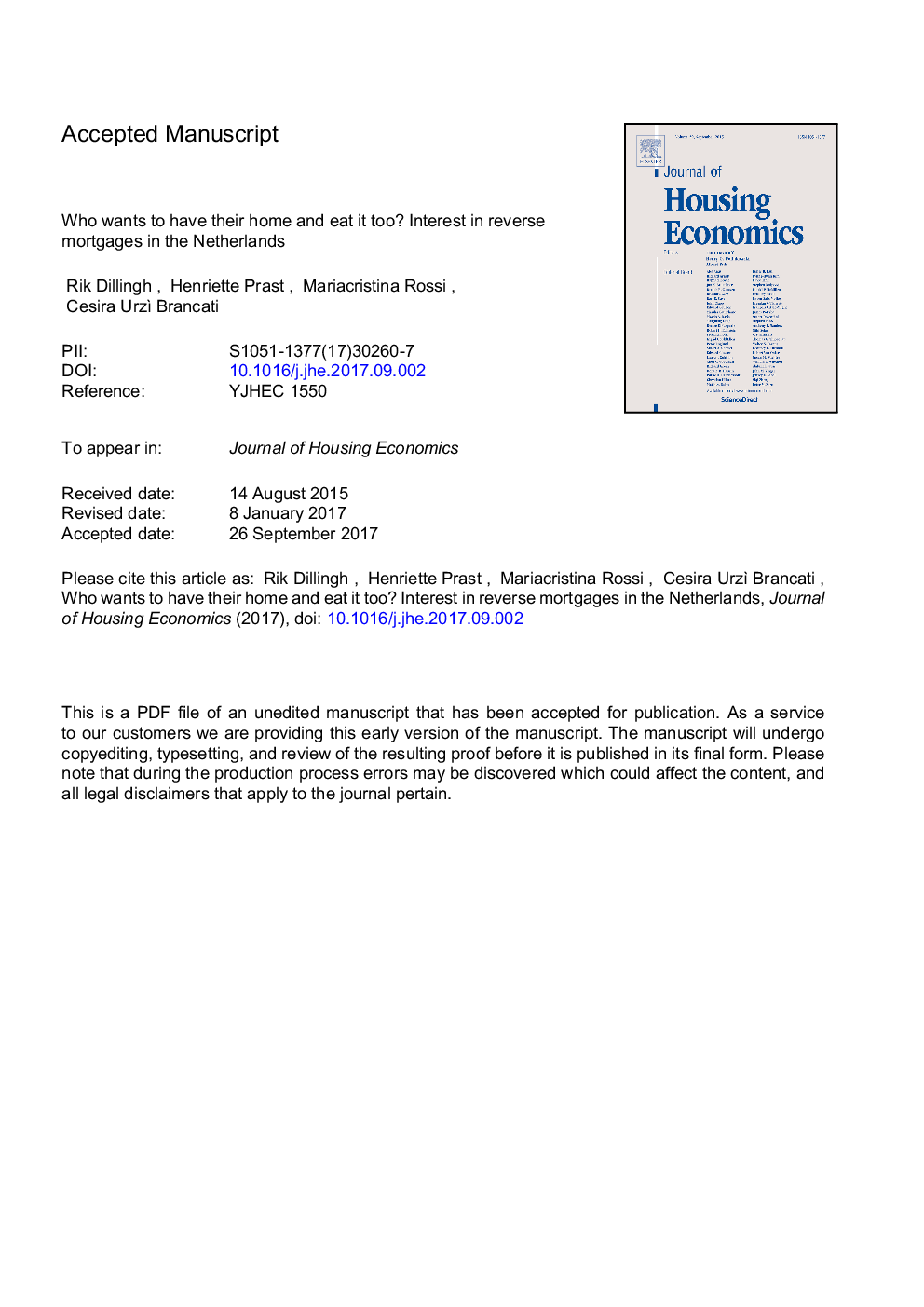| Article ID | Journal | Published Year | Pages | File Type |
|---|---|---|---|---|
| 5100826 | Journal of Housing Economics | 2017 | 34 Pages |
Abstract
We carry out an empirical analysis to assess the level of interest in reverse mortgages in the Netherlands. Our results indicate that among Dutch homeowners there is substantial potential interest in reverse mortgages, especially for the purpose of being able to live more comfortably and not worry about money until death, or to make a significant expenditure on home improvements or traveling. Of the respondents who are interested in taking out a reverse mortgage loan, most indicate they prefer a line of credit (42%), while fewer prefer an annuity (15%) or a lump sum (10%). Our regression results, based on rich survey data, indicate that interest is higher among the self-employed and those who expect pension cuts, have wishes for big expenditures, have a high housing wealth relative to their income or already have more than one mortgage. Women and those with (grand)children, a lower socioeconomic status, sufficient savings and/or a deteriorating health are less interested. We find that giving examples of using a reverse mortgage for the benefit of the homeowners' (grand)children significantly raises interest in reverse mortgages among people who wish to leave a bequest. We interpret this as evidence that people are unaware of the potential of reverse mortgages to optimize the timing of wealth transfers.
Related Topics
Social Sciences and Humanities
Economics, Econometrics and Finance
Economics and Econometrics
Authors
Rik Dillingh, Henriette Prast, Mariacristina Rossi, Cesira Urzì Brancati,
